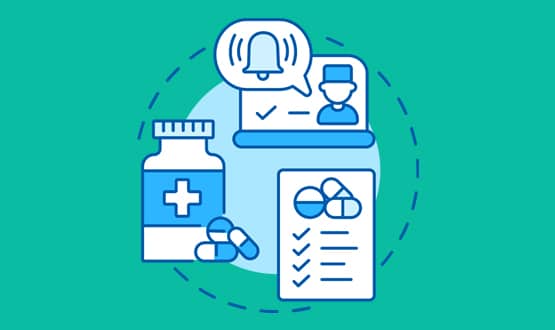Expert view: Alan Dutta-Plummer
- 20 May 2010
 |
|
Alan Dutta-Plummer |
Lean is an approach designed to improve flow and eliminate waste that was originally developed in the motor manufacturing industry. It is now being introduced into many other industries and sectors, including the health sector.
Lean is simply about flow; how to smooth the journey, remove all the barriers and interruptions to delivering value, while minimising waste and being flexible and open to change.
It is not an expensive or necessarily radical overhaul of the way a business operates. It works by finding common sense solutions and exploiting the expertise that exists within the workforce. As such, it is a model that can be easily adopted and should be considered as a possible way forward in the NHS on a trust-by-trust basis.
In the case of Milton Keynes NHS Trust pharmacy, a high level of duplication and waste was identified through the Lean system, both in terms of stock control and time management. New processes were introduced with the help of specialist Lean consultants, who were able to implement systems that were compatible with the use of JAC.
Helping the business
The main role of the hospital pharmacy is to label, check and dispense drugs to the wards, and there are predictable peaks in activity due to the timing of doctors’ visits to patients.
Improving stock control was central to the Lean Approach at Milton Keynes; moving away from ordering large volumes as a matter of course, to simply ordering the level of stock that was actually required.
JAC’s systems were also used to help the introduction of Lean by analysing how staff were working day-to-day. This meant they could easily identify the pressure points in work patterns and the areas that could be improved.
The trust was able to move away from a traditional work pattern in which staff focussed solely on the tasks they were responsible for. Instead, it took the approach of moving staff around to tackle pressure points and support colleagues as demand required it.
This new methodology improved overall efficiency – where previously there would be two daily peaks of activity when demand was highest for the pharmacy’s services, work was now more evenly spread throughout the day.
Small changes have a big impact
One of the biggest issues faced by the pharmacy at Milton Keynes – and one of the biggest challenges facing pharmacies at trusts elsewhere – is losing track of drugs on the wards and needing to re-dispense them.
Drugs are being dispensed on to the wards all the time and for a variety of reasons they can end up in the wrong place; often because the patient has been moved onto another ward and the message has not come back in time. It is common for the drugs to then be re-dispensed.
The pharmacy looked at this problem through the Lean approach and implemented a much clearer system for dispensing drugs. Instead of relying on people to put the items in the correct place, a system of colour-coded trays was introduced so that technicians could see at a glance what needed processing and what the priorities were.
They also made sure patients’ movements were kept up to date so staff could keep track of what was happening on the wards. As a result there was a reduction in the number of drugs going to waste.
Changing culture
A change in working culture is often required when taking on a new working methodology. When the pharmacy at Milton Keynes took on the Lean Approach, one of the biggest changes was to involve everybody in the process, rather than having a top-down, chain-of-command instructions.
Most staff will have their own ideas about what can be improved about their job and the Lean Approach enables their voices to be heard and ideas taken on board.
In Milton Keynes one of the big challenges was changing perceptions and making everyone realise that they could change how they worked themselves. Some of the changes were driven by straight forward thinking and fresh ideas.
One of the problems faced by staff was the number of day to day distractions, ranging from the phone ringing to patients or clinical staff presenting themselves at the pharmacy. Traditionally, these would be handled by any member of staff available at the time.
As no one person was responsible for dealing with enquiries, information and messages would get lost in the process. The solution was to allocate a dedicated person to answer the phone and attend to people arriving at the desk. It was an obvious thing to do and made a big difference – yet it was one of the ideas that did not cost anything to implement.
Overall, the level of efficiency achieved was highlighted by the fact people no longer have to work late to get the job done. Staff had been working an extra 45 minutes per day, so the change was obviously popular and helped to raise team morale.
A crucial difference of the Lean Approach from other systems is that suggestions from staff are highly valued and acted on to ensure that sense of ownership is real, and that is genuinely appreciated.
Future benefits
Adopting the Lean Approach has made a huge difference to the running of the pharmacy at Milton Keynes and it may provide a model for other pharmacies looking to make savings in the future.
The benefits of the Lean Approach can include financial savings and certainly lead to better efficiency, but it can also help to enhance patient safety by reducing the risk of dispensing errors, which should form the basis of operational excellence for now and the future.
For more about how JAC and the Lean Approach, contact the company on +44 (0) 1268 416 348 or info@jac-pharmacy.co.uk.




